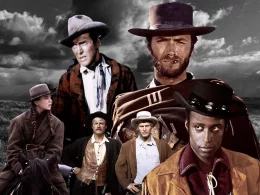Classic rock is a genre that has stood the test of time, with its roots tracing back to the blues and rock ‘n’ roll of the 1950s and 60s. In this article, we’ll explore the rhythmic origins of classic rock, from the bluesy grooves of Chuck Berry to the hard-hitting beats of Led Zeppelin.
The Blues: The Foundation of Classic Rock
The blues is a genre of music that originated in the African American communities of the southern United States in the late 19th century. It is characterized by its use of the 12-bar blues chord progression, which has become a staple of classic rock.
One of the most influential blues musicians of all time was Muddy Waters. His raw, emotional vocals and driving guitar riffs inspired countless rock musicians, including the Rolling Stones and Eric Clapton.
Another blues legend who had a profound impact on the development of classic rock was B.B. King. His smooth, soulful guitar playing and expressive vocals helped to bridge the gap between blues and rock ‘n’ roll.
Rock ‘n’ Roll: The Birth of Classic Rock
Rock ‘n’ roll emerged in the 1950s as a fusion of blues, country, and R&B. It was characterized by its upbeat tempo, catchy melodies, and rebellious attitude.
One of the pioneers of rock ‘n’ roll was Chuck Berry. His signature guitar riffs and energetic stage presence helped to define the genre and set the stage for the emergence of classic rock.
Another influential figure in the early days of rock ‘n’ roll was Little Richard. His flamboyant style and high-energy performances paved the way for future rock stars like Mick Jagger and Freddie Mercury.
The British Invasion: Classic Rock Goes Global
In the 1960s, a wave of British bands emerged that would forever change the face of rock music. The Beatles, the Rolling Stones, and the Who were just a few of the groups that helped to popularize classic rock around the world.
The Beatles, in particular, were known for their innovative use of rhythm and melody. Songs like “Ticket to Ride” and “Come Together” featured complex rhythms and unconventional chord progressions that would influence generations of rock musicians.
Led Zeppelin: The Epitome of Classic Rock
Led Zeppelin is often considered the quintessential classic rock band. Their heavy, blues-inspired sound and intricate arrangements set them apart from their contemporaries and helped to define the genre.
Drummer John Bonham was a key component of Led Zeppelin’s sound, with his thunderous beats and intricate fills. His influence can be heard in the work of countless rock drummers, from Neil Peart to Dave Grohl.
Conclusion
From the bluesy grooves of Muddy Waters to the hard-hitting beats of Led Zeppelin, the rhythmic origins of classic rock are deeply rooted in the history of American and British music. By tracing the evolution of this genre, we can gain a deeper appreciation for the artists who helped to shape it and the impact that their music continues to have on popular culture today.











